DIRECTED BY: Charles Chaplin
STARRING: Charles Chaplin, Merna Kennedy, Al Ernest Garcia
WON: Honorary Award (Charles Chaplin, for versatility and genius in acting, writing, directing and producing The Circus)
The Circus is an oft-ignored entry in Charlie Chaplin's Little Tramp canon. Released between two of Chaplin's most successful and talked-about films, The Gold Rush (1925) and City Lights (1931), it's easy to miss it. It's not even mentioned in Chaplin's official biography.
Yet, for everyone interested in Chaplin, this is much more of a required viewing then any either of the films that sandwich it. Out of all the Chaplin films I've seen (which is fewer then I care to admit), The Circus is the most personal of his works, the Tramp mirroring Chaplin's own hardships and ambitions.
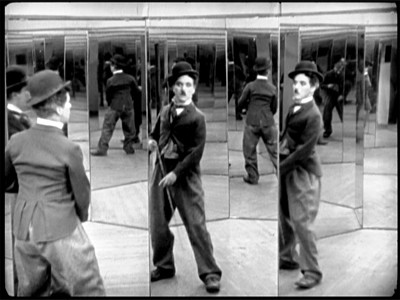
Chaplin grew up in the music halls of London, which shared many elements of the classic circus. Clowns, mostly. In fact, most classic clown gags were formed in the music halls, and had become stale by 1928. Chaplin was more then aware of this, so unlike the clowns in The Crowd, nobody laughs at these clowns' old gags, and the clowns ain't laughing either.
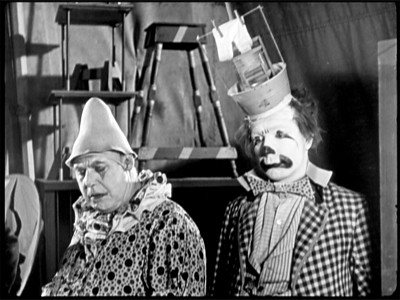
Chaplin created a purpose for himself: to take apart the old gags he learned in those music halls and rejuvenate them into something new.
Though a series of misunderstanding and chase scenes, the Tramp ends up running into the circus and starts messing up the acts, but the crowd loves it. The ringleader offers the Tramp a job, and he goes through a series of auditions performing classic gags, but can't pull them off.
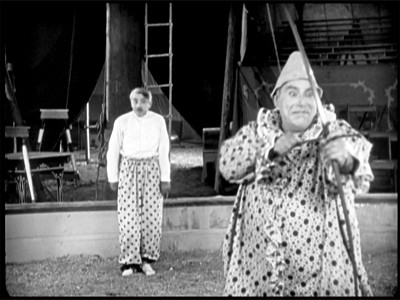
One of the old gags is called the "William Tell gag," in which an archer attempts to shoot an apple off his partner's head, but the partner keeps taking bites out of the apple and unbalancing it. It's an old, old gag. It fact, it was filmed as far back as 1900.
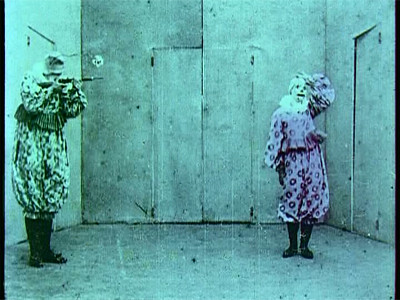
Chaplin began playing with this gag long before The Circus, including filming (but not finishing) a version ten years earlier with the bow replaced with a colt 45.

Chaplin finally returned to the gag, but instead of replacing the weapon, he replaced the fruit.
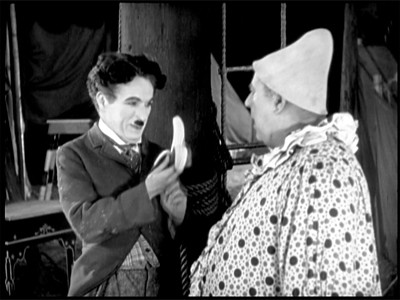
And with that, an old gag was made anew.
Chaplin not only revised old gags with the film, but also revised old Chaplin. The Circus has a similar plot to that of his 1916 short film The Vagabond. Both have the Tramp falling for a woman under the control of an abusive father figure.

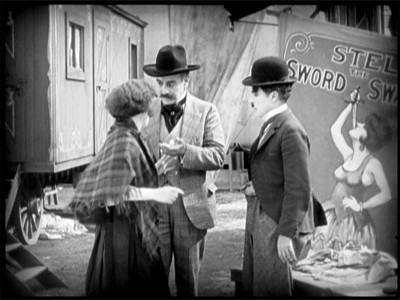
And in both films, the girl eventually falls in love with a dark handsome stranger, much to the Tramp's dismay.
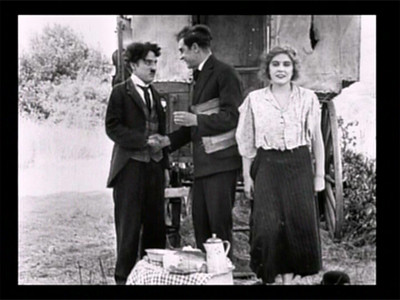
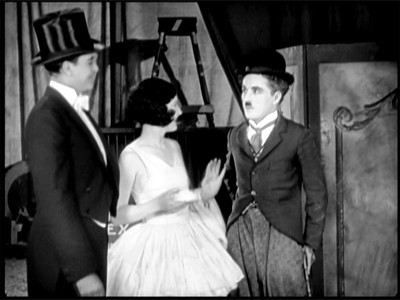
I can't say for sure, but I imagine that all this looking back was tough for Chaplin at the time. Remember when I said the film wasn't mentioned in his official biography? That's because it was one of the most difficult movies Chaplin ever made. First, a large storm destroyed part of the set. Then, chemical treatment destroyed the first two weeks worth of film and they had to start all over again. Then a fire broke out and destroyed the entire set. This photo was taken that day:

Things only got worse. Through the production of the film, Chaplin was going through a bitter and very public divorce with his second wife Lita Grey. Fearing that his film would be taken away from him, Chaplin shut down production for almost a year and hid the film negatives. And finally, to top it all off, there were claims of back taxes by the IRS.
In many ways, this makes the centerpiece of the film, where the Tramp is forced to perform in a high wire act, all the more metaphorical.

When the act begins, the Tramp is wearing a harness and is in full control. However, after losing the harness and then being attacked by a pack of monkeys, the Tramp is in a pretty spot.
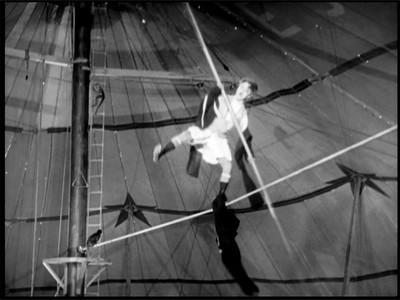
But he never falls off the wire! It's almost too perfect of a representation of Chaplin's turbulent months working on the film.
The film was award the first "Honorary Award" at the Academy Awards. It was originally up for an acting and directing award too, but the Academy pulled him from the competition and gave him his own special award instead. I'm not sure why exactly. Maybe they thought it'd be too unfair for the other nominees? Maybe they thought there'd be a public uproar if Chaplin didn't win the awards? Or maybe they really saw the importance that The Circus was to Chaplin's filmography.
Whatever the case, Chaplin deserved this special award.
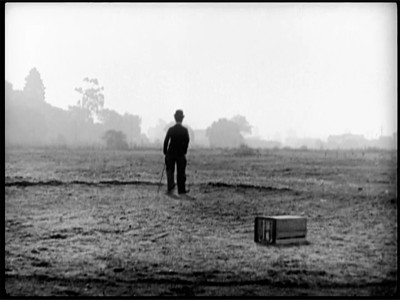
1 comment:
Fabulous images for charlie. There are many people in this world who have been inspired by movies to do something big in their lives. He is the one.
hollywood film centerpiece
Post a Comment